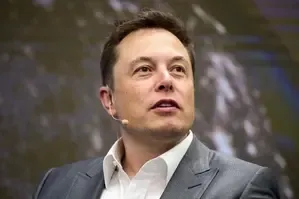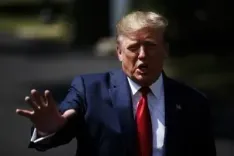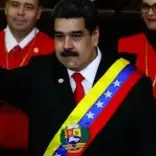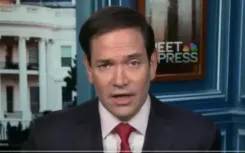How is S. Korea's Finance Minister Promoting Tech Innovation and Supply Chain Cooperation for Economic Growth?
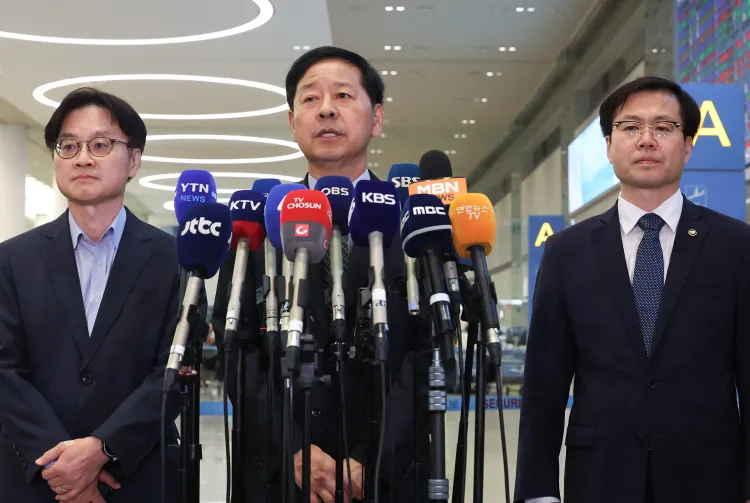
Synopsis
Key Takeaways
- Technological innovation is crucial for economic growth.
- Supply chain cooperation is vital for stability.
- Importance of strategic partnerships with trading nations.
- South Korea's commitment to securing critical minerals.
- $350 billion investment agreement with the U.S. highlights economic collaboration.
Seoul, Nov 17 (NationPress) The Finance Minister Koo Yun-cheol emphasized the need for initiatives to forge new avenues for growth through technological advancements and collaboration in supply chains amidst evolving global dynamics.
Koo articulated this at a conference held in Seoul, co-organized by the Korea Development Institute (KDI) School of Public Policy and Management and the Singapore-based Lee Kuan Yew School of Public Policy. The event focused on the challenges and strategic policy options facing Asia as tensions between Sino-U.S. relations escalate under the second Donald Trump administration, as reported by Yonhap News Agency.
According to Koo, the swift transformation of global supply chains poses significant challenges for South Korea and other Asian nations that have thrived on principles of openness and autonomy. He stated, “Now is the time to create new growth opportunities through technological innovation and supply chain cooperation. Collaborating with key trading partners is more crucial than ever.”
The South Korean government is dedicated to ensuring stable supply chains by executing a range of economic security strategies and sustaining regular dialogue with key nations for joint investments and collaborative efforts, particularly regarding critical minerals, the minister noted.
In a related development, South Korea and the United States have formalized a memorandum of understanding (MOU) regarding a $350 billion investment commitment in exchange for reduced U.S. tariffs.
The MOU was electronically signed by South Korean Industry Minister Kim Jung-kwan and U.S. Commerce Secretary Howard Lutnick, as per the Ministry of Trade, Industry and Resources.
On October 29, both parties finalized the terms of Seoul’s $350 billion investment promise linked to lower U.S. tariffs. The agreement stipulates that the investment will include $200 billion in cash installments with an annual ceiling of $20 billion, in addition to $150 billion for collaborations in shipbuilding.



